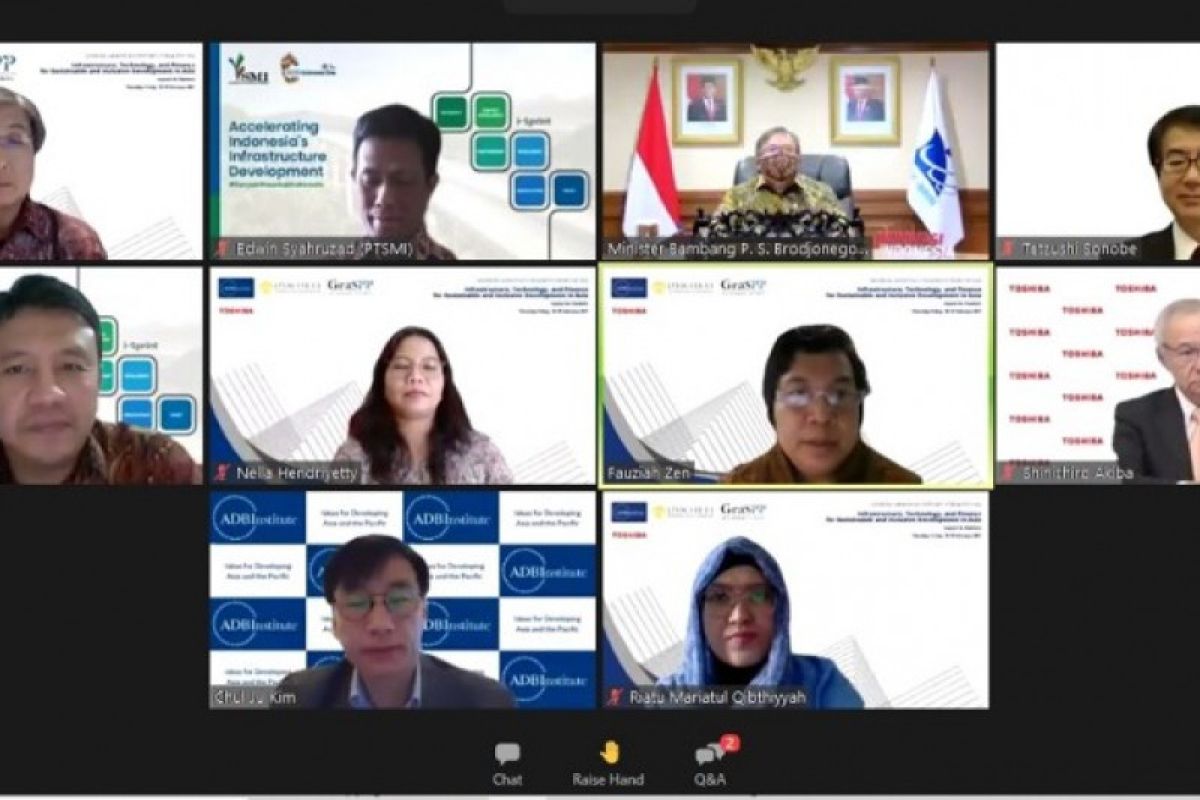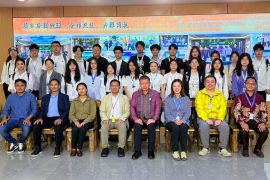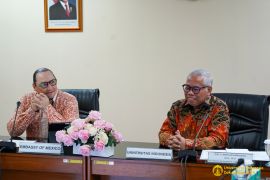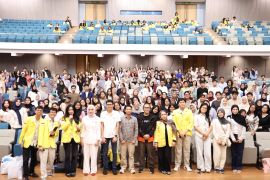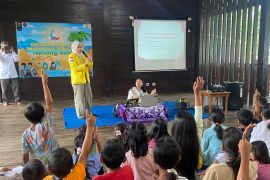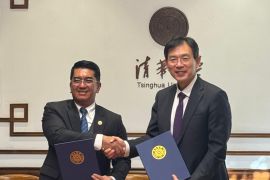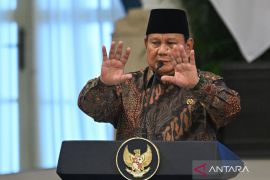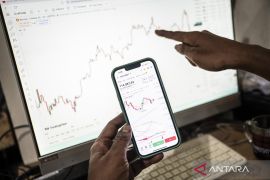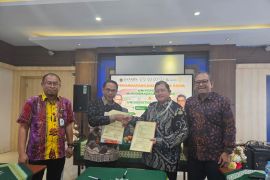Physical and mobility restrictions have severely affected the maintenance and operation of infrastructure development projectsDepok, W Java (ANTARA) - Rector of the University of Indonesia (UI) Professor Ari Kuncoro highlighted the importance of making and promoting strategic policies that effectively and efficiently enable limited resources to cope with the impacts of COVID pandemic.
The coronavirus pandemic has dragged almost all countries into a situation that forces them to confront multidimensional challenges in the midst of limited resources, he told a webinar on impacts of COVID-19 on Asia's economy on Sunday.
The situation has pushed demands for financial resources to recover the economic impacts of COVID-19, Kuncoro stated in a statement that made available to journalists regarding the international webinar.
The webinar was co-organized by the UI's Economic and Social Research Institute (LPEM), Asian Development Bank Institute (ADBI), The University of Tokyo's Graduate School of Public Policy (GraSPP), and Toshiba International Foundation.
Kuncoro said endeavors to handle the multidimensional challenges could also bring positive impacts on development in the affected countries.
"I hope the participants will get new insights from this discussion forum," he said.
The participants could also share knowledge and experience with related stakeholders in infrastructure development so that they would more comprehensively understand about Asia's challenges and problems in the future, he said.
Dean of UI's Faculty of Economics and Business Yulianita Gitaharie said the webinar was also expected to share several countries' insightful experiences in making policies and endeavors to maintain their quality of infrastructure services.
"Physical and mobility restrictions have severely affected the maintenance and operation of infrastructure development projects," Gitaharie argued.
The condition has challenged policy makers to make policies that enable the infrastructure system to be adaptive to the pandemic situation, Gitaharie said.
Regarding Asia's economic growth, Teguh Dartanto, Vice Dean for Academic and Research Affairs at UI's Faculty of Economics and Business, said the economic growth of many countries in the region shrank about 2.3 percent compared to those in 2019.
The shrinking economic growths occurred because many countries enforced social restrictions that tremendously affected consumption level, business expension, and supply chain, he argued.
The condition has triggered changes in the construction of social infrastructure in the fields of education, health, governance, and public housing, Dartanto said.
In dealing with it, he proposed that countries make relevant policies for social infrastructure by providing affordable and decent houses, building temporary health centers, and changing budget posture by focusing on health sector.
Related news: Mutation affecting COVID vaccine efficacy: minister
Related news: Second vaccine dose may raise antibody level to 99%: official
Translator: Feru L, Rahmad Nasution
Editor: Fardah Assegaf
Copyright © ANTARA 2021
